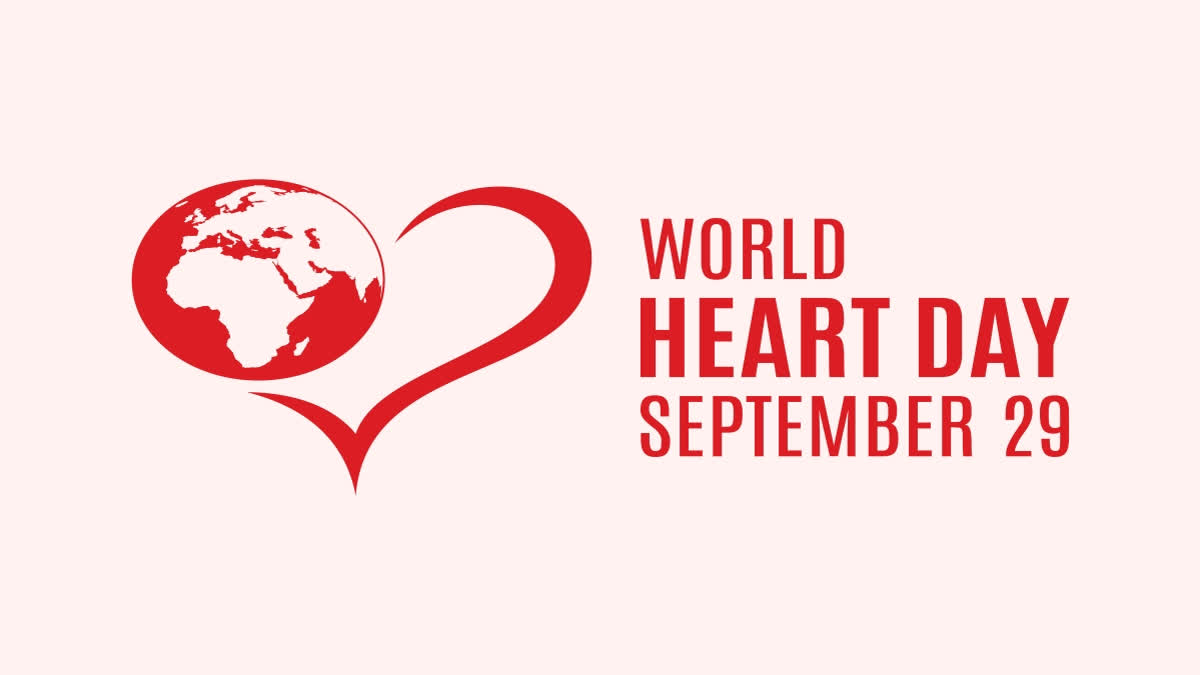New Delhi: World Heart Day is observed annually on September 29 to raise awareness about cardiovascular diseases (CVDs). The day also aims to inform people, government as well as private institutions regarding the prevention of heart disease.
History & Significance
It was in 1999 the World Heart Federation (WHF), in collaboration with the World Health Organization (WHO), announced the establishment of World Heart Day. The idea for this annual event was conceived by Antoni Bayés de Luna, former president of WHF.
The first World Heart Day celebration took place on September 24, 2000. However, in 2011, the WHF decided to fix the date to September 29 each year to standardise the event and create greater global visibility.
As per an estimate, combined, conditions affecting the heart or blood vessels – such as heart attack, stroke and heart failure – kill more than 20.5 million every year. The majority of these deaths happen in low and middle-income countries.
According to the World Heart Federation, 80% of premature deaths from CVD are preventable. “By making small changes to our lifestyle – what we eat and drink, how much we exercise, and how we manage stress – we can better manage our heart health and beat CVD," read a statement from WHF.
Theme and Importance
The World Heart Federation, from 2024-2026, decided to campaign under the theme of "Use Heart for Action" supporting individuals to care for their heart and empowering them to urge leaders to take cardiovascular health seriously by providing a global platform for action.
"The action is the deliberate and impactful execution of efforts. It highlights a shift from awareness to empowering with a clear purpose and goal. There is also the two-way nature of action: efforts to influence policies and advocate for behavior change and physical activity. It reflects the requirement for sustained efforts and collaboration," the WHF said.
This 2024 World Heart Day campaign is dedicated to motivating every country to develop or support national cardiovascular health action plans. World Heart Day in India is marked with various programs, health camps and seminars.
WHO On World Heart Day
World Heart Day provides an opportunity for WHO and its member states to join the global call to raise awareness about heart health and accelerate actions to prevent, detect and manage cardiovascular diseases.
According to the global health watchdog, South-East Asia region is home to a quarter of the world’s population. The region is experiencing a very high burden of noncommunicable diseases (NCDs), and cardiovascular diseases (CVDs) are responsible for 3.9 million annual deaths, making up 30% of all deaths.
Alarmingly, almost half (48%) of these CVD-related deaths occurred prematurely, affecting individuals aged 30 to 70 years and imposing significant socioeconomic burdens on families, communities, and countries.
Cause of CVD
The main causes of the burden of CVD include modifiable lifestyle factors such as tobacco use, alcohol consumption, unhealthy diets especially high salt intake, and lack of physical activity. According to WHO, raised blood pressure and raised blood glucose levels are key drivers and they can be detected, diagnosed, and managed adequately in primary care.
"One in four adults in the region has raised blood pressure, while one in ten has diabetes, and less than 15% are on effective treatment coverage. Additionally, high levels of lipids in the blood and suboptimal management of acute cardiovascular events further worsen CVD mortality,” the WHO said.
Remedies
Empowering individuals to adopt healthy lifestyles, quitting tobacco, reducing salt intake, eating a balanced diet, being less sedentary, and managing stress can significantly reduce the risk of CVD. The government needs to prioritise actions for creating enabling environments by implementing and enforcing policies for reduction of trans fats in food supplies, strengthen tobacco control laws, and promote initiatives to reduce salt intake. High-quality and effective primary health care are also crucial for the prevention and management of CVDs.



